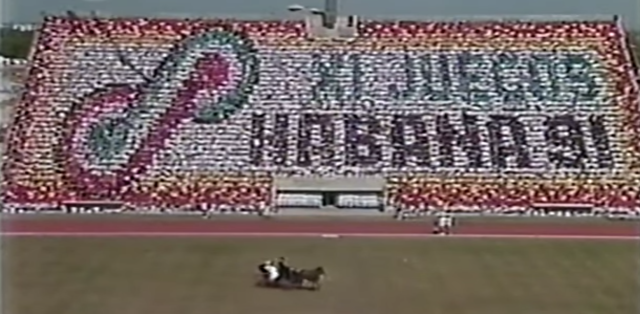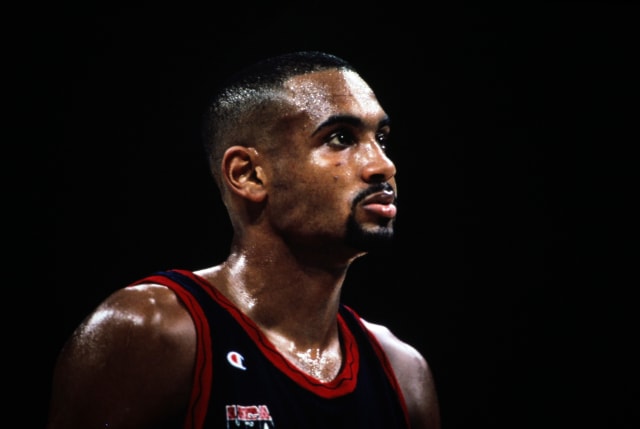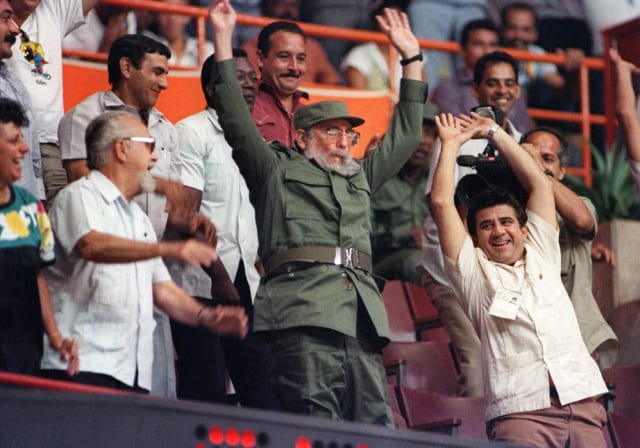The second visit of Team USA to Habana: 1991 Pan American Games
On August 3, 1991, 15,000 spectators flooded the Coliseo de Ciudad Deportiva in Havana hoping to give President Fidel Castro the best birthday gift he could receive —a Cuban victory against the United Stat
On August 3, 1991, 15,000 spectators flooded the Coliseo de Ciudad Deportiva in Havana hoping to give President Fidel Castro the best birthday gift he could receive —a Cuban victory against the United States’ basketball National Team.
The game was the opening for the Pan American Games that year, an event that up to today has been the most attended sports game on Cuban soil.

With 22 points by Jim Jackson and another 19 by Christian Laettner, the North Americans opened the tournament winning with a slim 92-88, against a competitive Cuban National Team that dominated during the first half 50-47.
For this commitment, the United States’ delegation created a team exclusively of NCAA college athletes, some which would become NBA superstars in the future. Among them were Grant Hill and Christian Laettner from Duke University, James “Jim” Jackson from Ohio State, alongside Walt Williams and Clarence Weatherspoon.

Meanwhile, the Cubans kept their typical squad of talented national players full of speed and strength.
“There were a lot of expectations because the United States brought a team that at that moment were college players, but almost all of them went to the NBA,” said Ruperto Herrera, president of the Cuba Basketball Federation. “Basketball, in the context of the Games, was the one sport that had the most attraction because of the quality of those participating. Those were games that. even though we lost, showed our determined capacity, and we felt confident.”
The game was not exempt of controversy: while warming up, Hill destroyed the backboard with a resounding dunk. The board had to be replaced and this caused a long delay.
Another aspect that brought media attention was the fact that the United States National Team played their games in Cuban soil but flew back to the United States after these to practice and rest in Miami, to improve the comforts of the players that were almost on the professional level.
However, fourteen days after the opening game there was the rematch between both teams, but this time for the bronze at play —and with the protagonist of the tournament at the time Jim Jackson, who averaged 18.2 points, out of action because of an ankle injury.
Still, the United States, with six of their players inouble figures, once again beat the local team 93-74. That was the end of a nightmare tournament for the Cuban team that went blank in four games. The gold medal went to Puerto Rico, while Mexico took the silver.
“This is why we say that there will be two eras in the history of our architecture: before the Pan American Games and after the Pan American Games,” said chief commander Fidel Castro in the opening speech of the Games. He was not wrong. Since then, the US has a record of 138-5 in Olympic games.

One of the most relevant historical factors of this game, which is because of the game itself, is that the United States opted to create a team out of the best talent from the NBA for their international commitments, thus debuting in 1992 the so-called Dream Team, which had players with names like Jordan, Bird, and Thomas.
“No one knows how good the rest of the world is becoming at basetball. People back in the States may not realize it and they’re just going to make more excuses for why we lost,” said Laettner after the game on a note published by William C. Rhoden in The New York Times on Friday, August 16, 1991, and time has proven him right with the dominance of the United States in world basketball.
27 years later, we will see Cuba and the United States meet up again on Cuban soil next Sunday, July 1, as part of the third qualifiying window of the FIBA World Cup 2019. Cuba is coming from a game against a Puerto Rico that portrayed themselves as revitalized and highly competitive, while the United States arrive cautiously after their first loss of the round, courtesy of the Mexican National Team.
FIBA